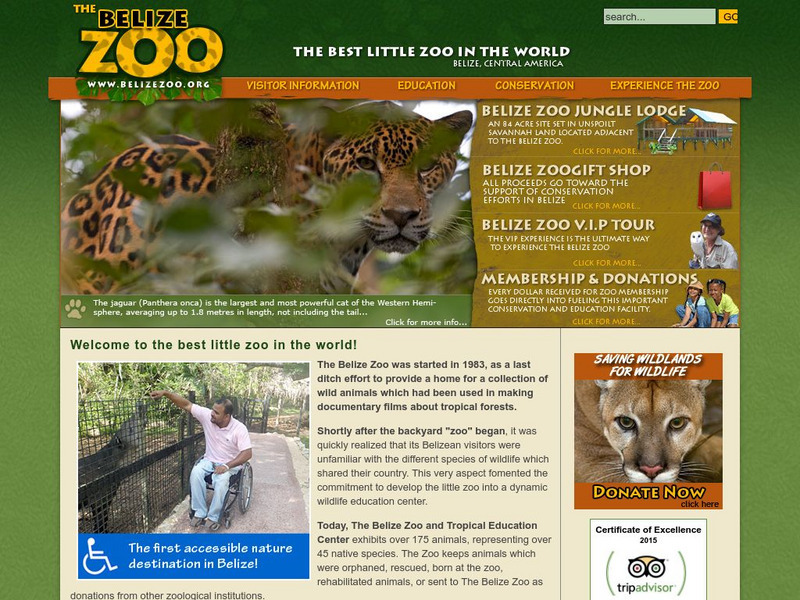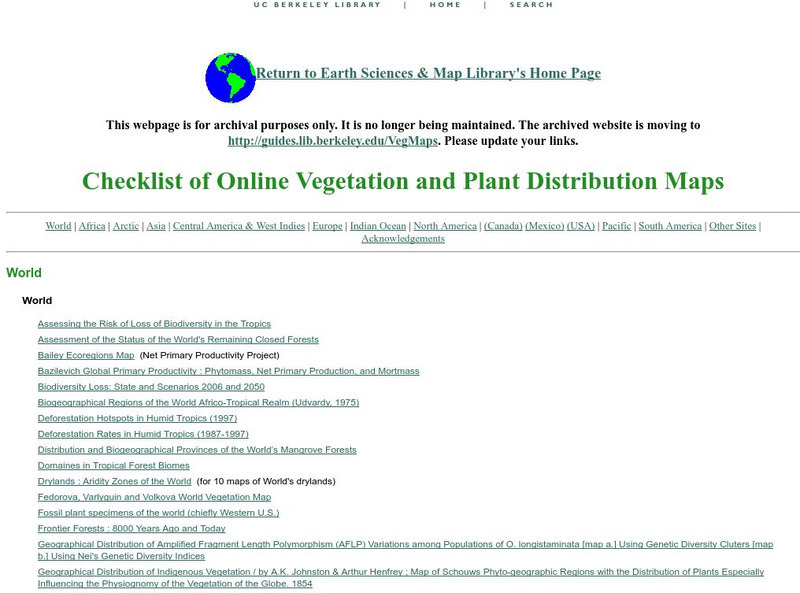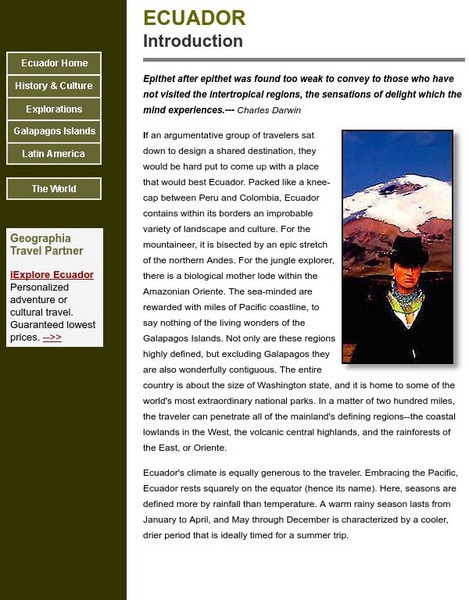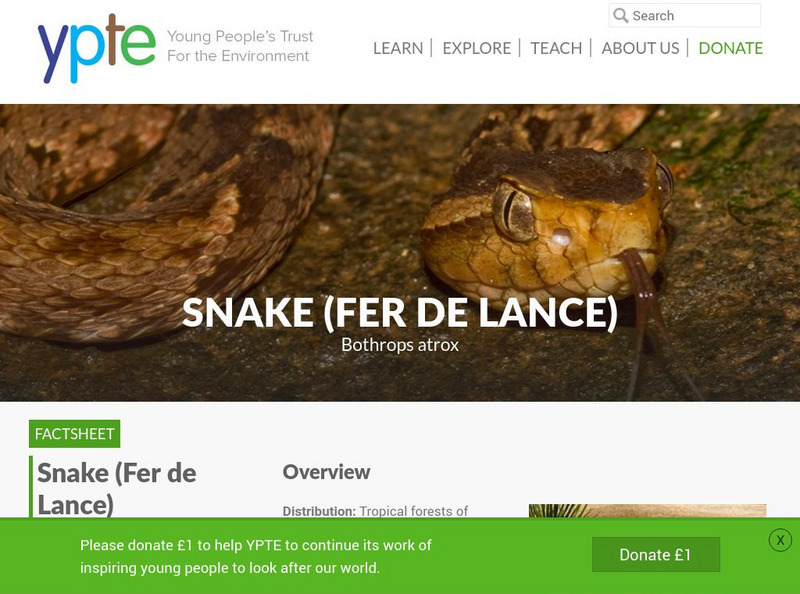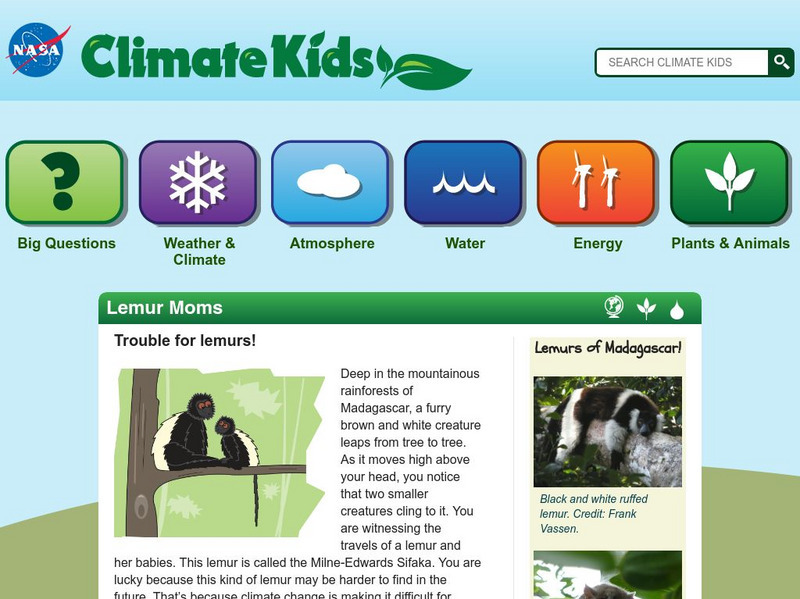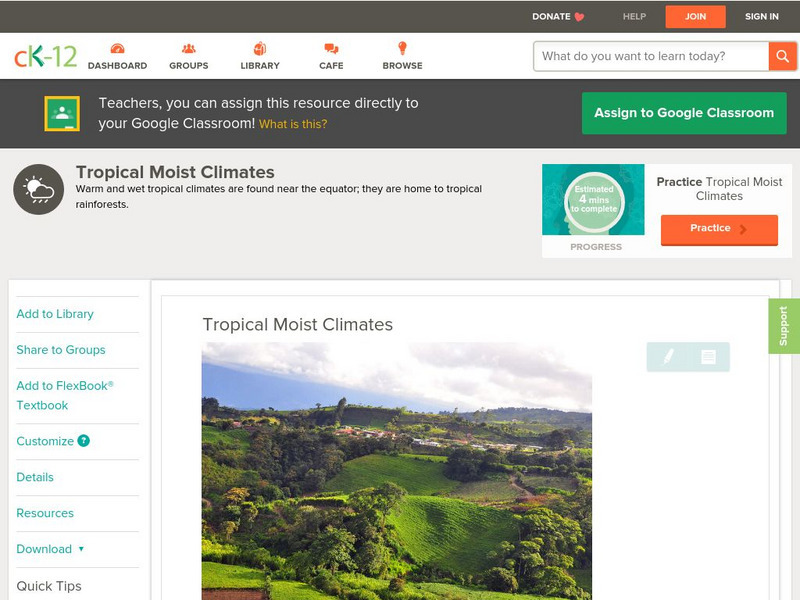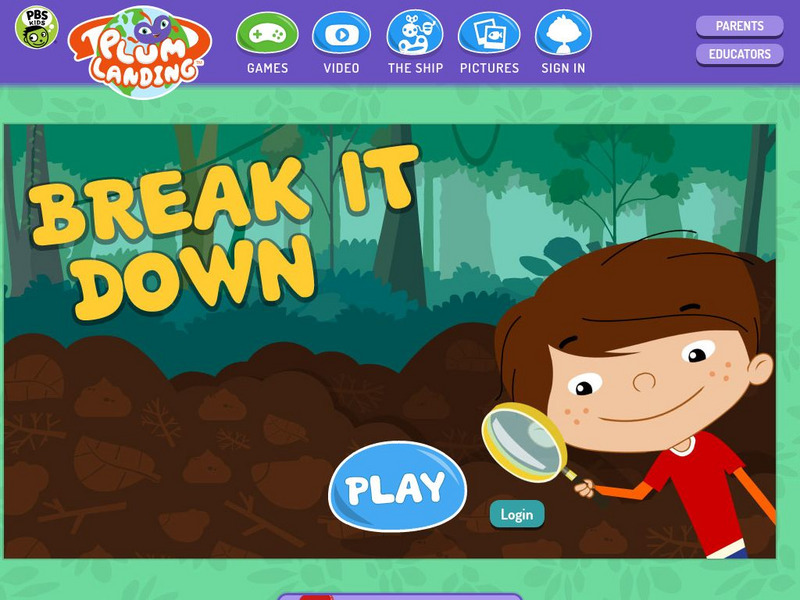Other
The Belize Zoo Animals of the Tropical Forest
This zoo is primarily a collection of wild animals indigenous to the tropical forests of Belize. At the bottom of the page, the animals are organized into 3 categories: mammals, birds, and reptiles.
Ohio State University
Ohio State University: General Plant Biology: Biomes and Agriculture
An introduction to biomes and how agriculture is considered in studying large ecosystems of the world. Text is well written and easy to follow with links, charts, and pictures.
Palomar Community College District
Major Biomes of North America
A good review of basic terminology followed by descriptions and pictures of the North American biomes.
Science Museum of Minnesota
Science Museum of Minnesota: Strata of the Rain Forest
This resource features a hand drawn picture of the layers of the rain forest. This brief but descriptive resource which will give younger students a visual picture of the living conditions in each layer.
University of California
U.c. Berkeley Libraries: Plant Distribution Maps
This resource provides a list of online maps of world vegetation such as biomes, forests and plants.
World Wildlife Fund for Nature
Wwf Global: Mysterious Carnivore Discovered in Borneo's Forest
In December 2005 an animal was discovered in the mountainous region deep in the heart of Borneo. This carnivorous species is suspected to posses characteristics similar to a cat or lemur. Learn more about this mysterious creature here.
InterKnowledge Corp.
Geographia: An Introduction to Ecuador
Detailed site that describes and unearths the fascinating country of Ecuador. Experience the culture, history, and geography of this beautiful land.
Geographypods
Geographypods: Introduction to Ecosystems and Biomes
Using worksheets, images, videos, and internet resources, students will be able to learn the names and locations of the seven major global biomes in the correct order from polar regions to the equator.
National Center for Ecological Analysis and Synthesis, University of California Santa Barbara
Kids Do Ecology: Biomes
At this site from National Center for Ecological Analysis and Synthesis you will find the answers to many questions about biomes. You will also find a listing of biomes along with a detailed explanation of each.
Eduweb
Eduweb: Indigenous Ecotourism
This scholarly article overviews how ecotourism is tied to a survey of sustainable development in the case of Rio Blanco, Ecuador.
PBS
Pbs Teachers: The Deadly Frogs of Manu
Identify dangerous frogs from the Amazon, determine what makes the frogs dangerous to humans and create posters depicting the frogs.
PBS
Pbs: The Living Edens: Borneo: From Caves to Kinabalu
View pictures, read text, and listen to information about the topography, flora, and fauna of Borneo, the world's third largest island.
Globe Tracks
Travel for Kids: Ecuador
Learn about Ecuador, such as what to do in its capital city Quito, the Andes, the Amazon, the Galapagos Islands, and other places to see in this South American country.
Other
Rockefeller University : Temperate Forests
An article published in "Science" magazine, the page discusses how forests were being destroyed by people and how they are gaining back ground. Find out the reasons!
Center for Educational Technologies
Wheeling Jesuit University: Arctic Tundra Biome
Provides text and pictures on the arctic tundra, its animals, plants, and their adaptations.
Exploring Nature
Exploring Nature Educational Resource: Rainforests of the World
Read about different rainforests around the planet. Find out geographical information, as well as typical plants and animals living there.
Other
Caribbean Beat: The Unexpected Country
Interesting article describing the unique setting and characteristics of Guyana. Read about this "Land of many waters," and understand what makes Guyana so special.
Writing Fix
Writing Fix: Action Packed Rain Forest Sentences
In this lesson, Jane Yolen's Welcome to the Greenhouse is used as a mentor text. Students will record their favorite verbs from the mentor text, rank them according to their favorite, and share them. Students will also use interactive...
Regents of the University of Michigan
Animal Diversity Web: Common Lancehead
The University of Michigan Museum of Zoology presents information on the common lancehead. Pictures, classification, and additional facts are included.
World Wildlife Fund for Nature
Wwf: Our Earth: Ecoregions: Habitats: Temperate Forests
Defines "temperate forest" and introduces three types: Mediterranean forests, temperate rainforests, and deciduous forests.
Other
Young People's Trust for the Environment: Fer De Lance
The Young People's Trust for the Environment website outlines the Bothrops atrox, also known as the fer-de-lance, or common lancehead. This poisonous snake is the most dangerous snake found in Central and South America.
NASA
Nasa: Climate Kids: Lemur Moms
Meet some Madagascar lemurs, and learn how the changing climate is affecting their species.
CK-12 Foundation
Ck 12: Earth Science: Tropical Moist Climates
[Free Registration/Login may be required to access all resource tools.] Describes characteristics of tropical climates.
PBS
Pbs Kids: Plum Landing: Break It Down
This PBS Kids activity is an extension of a Plum Landing episode featuring decomposers in the jungle. Students will combine different decomposers with fallen jungle materials to help form rich soil.
Other popular searches
- Rainforests
- Rain Forest
- Rainforest Diorama
- Tropical Rainforest
- Rainforest Food Webs
- Amazon Rainforest
- Rainforest Layers
- Tropical Rainforest Math
- Rainforests Art
- Rain Forest Diorama
- Amazon Rainforest Worksheets
- Rainforest Deforestation


